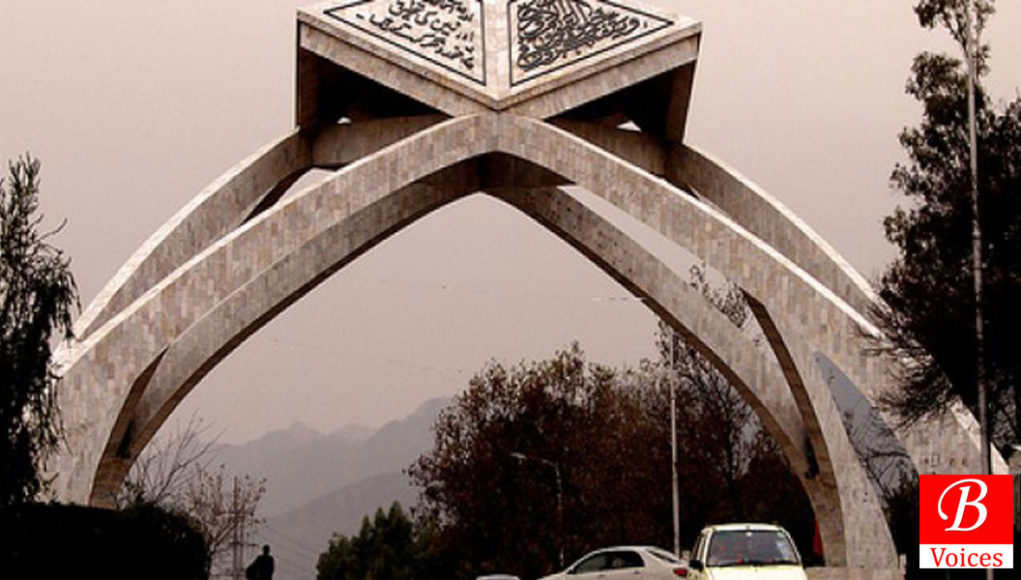Quaid e Azam University (QAU) is number one ranked university in Pakistan. According to Times Higher Education Ranking 2018 QAU is among the top 500 universities of the globe. However, a prolonged protest culminating in a hunger strike has badly exposed the incompetency of those in-charged with running QAU.
The story begins in May this year when Baloch and Sindhi students clashed in QAU. The clash lasted for few hours and numerous students were injured. The violent clash started from a trivial issue which is the case with most of campus violence instances. This shows the immaturity of both Baloch and Sindhi students in QAU who consider violence to be an inevitable solution for conflict resolution.
Anyhow, the clash continued for hours and the administration of QAU failed to control it. In fact it was reported that Police arrived on time but witnessed the violence episode as spectators and only took action once damage was done. There has not been any investigation on failure of QAU administration to stop the clash at first place because institutional accountability is always an afterthought in Pakistan.
Expelling students in such context, where QAU administration shares the blame, is a disproportionate penalty and can’t be justified
In aftermath of the clash, QAU administration took action against the students on both sides. Scores of students were suspended for a couple of semester but some half a dozen students were expelled from University. There is no disagreement on the point that students should be penalized for resorting to violence in QAU. They should not be given a clean chit. However, expelling students in such context, where QAU administration shares the blame, is a disproportionate penalty and can’t be justified.
Baloch students started their protest against the harsh penalties awarded by QAU administration. Later they were joined by QSF, federation of 6 ethnic councils, in protest. QSF used the Baloch students and agreed to discontinue the protest once QAU administration half-heartedly accepted their demands. Feeling betrayed, Baloch students tried to close down the university and faced Police brutality on orders of QAU administration. Now again the tactics of Baloch students to shut down the university can’t be justified but neither can be the disproportionate Police action against them.
Moreover, on 1st November Baloch students started hunger strike unto death against the decisions of QAU to expel Baloch students. Two protesting students, namely Saddam and Nouroz were hospitalized after they lost consciousness due to weakness. Seven days have passed and their strike is still continued and QAU administration is adamant that it will not reverse its decision to expel these students.
Now, one thing should be made clear that this strike is not on any matter of principle such as improvement of education system. Just like overwhelming majority of protests in Pakistan it’s motivated by personal interest. A lot of folks on social media are terming the case of two expelled Baloch students as continuation of decade old injustice with Balochistan. Genuine deprivations of Balochistan notwithstanding, it’s hard to rationally agree with the claims of these folks on social media which are mere rhetoric. Likewise, all the politicians who are jumping the bandwagon in solving the problem of these students are not genuinely interested in improving education system in their constituencies and only want to take political mileage of this issue.
Having said that under the circumstances there is no rational argument for QAU not to reverse the expulsion of the protesting students. Firstly, these students are on hunger strike for over a week and there have been protests all over Balochistan for their restoration. Secondly, many influential politicians of Balochistan have approached administration of QAU and Sindh Assembly has even passed a resolution in favor of restoration of these students. Thirdly, QAU administration shares the blame in this entire episode as it failed to control the campus and the particular clash in May. Fourth, the students who used violence are not professional criminals and only made a one-time mistake. Therefore, no one can oppose the restoration of the expelled students, not at least in a civilized society where protests matter.
No one can oppose the restoration of the expelled students, not at least in a civilized society where protests matter
Here it’s relevant to question the infamous Higher Education of Pakistan (HEC) which should not be in existence after the 18th amendment. HEC does not directly interfere in management of universities but it’s responsible for devising policies and rules which can be used for regulating universities. This episode along with several similar instances in Punjab Universities and other institutions prove that HEC has failed on this front. When the higher education system of a country is in news and social media for a prolonged hunger strike then it’s obvious that higher education regulators, HEC in this case, have failed miserably.
This sad chapter in higher education history of Pakistan should be used as an opportunity to reform campus management system and put in place measures to avoid campus violence, at least in Capital City. The students of Balochistan and Sindh who have committed mistakes but don’t deserve to be expelled, must be restored. The only person who should be sent packing is the Vice Chancellor who is leading QAU during its lowest point in history. But again it’s Pakistan and people with power don’t get sacked so easily. Though this has to change!
Editor
Balochistan Voices
Share your comments!








